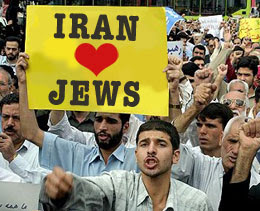This article by Andrew F. March in the Carnegie Council's Ethics & International Affairs magazine deals with one of the great issues of our time: religions within a liberal political system; more specifically, Islam within Western societies. The main focus of the article is Tariq Ramadan's To Be a European Muslim. However, in a long prelude, he sets out the terms of the debate, and it is this I would like to concentrate on.
The first term is political liberalism. While it is necessarily true that most westerners have little understanding of Islam, it is regrettably just as true that many seem to have as little understanding of their own political system. Political liberalism is not an ideology; ie it is not a systematic account of Truth, Meaning, God or Nature. It is agnostic on these questions; or rather, they are none of its business. March puts it like this: Political liberalism
is purely a doctrine of social and political cooperation. It seeks to elaborate the most reasonable public conception of justice and citizenship for free and equal persons, given the existence of disagreement on the ultimate meaning of life and the epistemological foundation for discovering it.
Furthermore, in a liberal society
public institutions do not give a philosophical or religious account of how liberal tolerance and neutrality fit into a grand theory of truth, the good, or the meaning of life. The claims of political liberalism are meant to be "free-standing"— that is, not derived from any single doctrine or religion, which might alienate those who do not endorse it. This strategy is, of course, designed to increase social unity: religious and cultural conflicts can be avoided or mitigated by limiting governmental power to what can be justified to all reasonable citizens.
This view of the state is, obviously, completely at variance with that of those Muslims for whom it commits the blasphemy of denying the unity of everything in the Oneness of God. In the same way, it is rejected by extreme versions of the Left (for whom the state should be the unitary expression of the revolutionary will of the people) and the Right (for whom it should embody the ethnic and/or cultural spirit of the same people).
The claims of the Left and the Right are no longer of any relevance. The question facing us now in Western countries is the relationship between the liberal state (if, that is, we still have one) and the Muslims who are our fellow citizens.
March is putting forward as a desirable end-state what he calls an "overlapping consensus".
Perhaps a Christian (following John Locke) believes that only sincere and uncoerced belief can help a believer achieve salvation. She reasons from this that state power used to punish citizens for thought or behavior incompatible with salvation is futile and, hence, religiously unsanctioned. She therefore endorses liberal political institutions, while at the same time affirming the truth of Christianity. When she relates liberal institutions to her deepest commitments and beliefs in this way, she has what Rawls has referred to as a "full justification" for those institutions, which the institutions themselves studiously avoid providing. When there exist many doctrines in a society (for example, various religions and secular philosophies) that all happen to provide their own unique full justifications for endorsing, on principled grounds, liberal terms of social cooperation, such a society enjoys what is knows as an "overlapping consensus."
With this in mind, he then sets out what he sees as the minimum and the maximum that the liberal state can demand of Muslims:
- that Islamic conceptions of morality can only be cultivated and encouraged within Muslim families and communities through noncoercive means;
- that the public sphere in non-Muslim liberal democracies cannot be expected to accommodate all Islamic religious sensibilities by limiting freedom of expression;
- that grievances with public authorities be redressed politically and with a long-term commitment to democratic political institutions;
- that non-Muslim fellow citizens are recognized as eligible for bonds of political and social solidarity and that relations with them are regarded as relationships of justice (rather than contingent accommodation);
- that Muslims can recognize the diversity and ethical pluralism of liberal societies as a permanent feature and not something to be ultimately overcome by a future Muslim majority;
- that, whatever legitimate solidarity Muslims feel for the global community of Muslims, non-Muslim states of citizenship enjoy immunity from violence.
I like very much his account of the theory of the liberal political system, though I wonder if we are straying further and further from it; that is, if because of our fear, we are trying to invest too much meaning in the system, turning it into an ideology therefore making more defined, but less flexible.
[I have not described March's view of Ramadan. Read the whole article. Apologies, but this post is already too long.]





